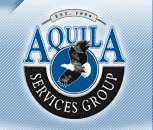Nigeria: Stakeholders Task FG On Arms Proliferation
http://allafrica.com/stories/200707040640.html
This Day (Lagos)
3 July 2007
Posted to the web 4 July 2007
Abimbola Akosile
Lagos
Various stakeholders have called on the Federal Government to set up a Small Arms Working Group (SAWG) to meet on ways to check proliferation in the country.
The committee, when convened, is also to discus a cross-regional methodology for data collection; information sharing between members, network and the Government without endangering the lives of members of the Working Group and other interested parties.
Above issues were contained in a communique issued by the Campaign Against Arms Trade (CAAT) Network, Nigeria, at the end of a one-day seminar held on June 18 at Ekpan, Delta State.
The seminar, which focused on the Global Week of Action Against Gun Violence, also explored the possibility of creating an ongoing Non Governmental Organisation (NGO)-Government research project on the implications of small arms proliferation.
The communique was jointly signed by Pastor Innocent Adjenughure, National Coordinator, CAAT Network, Nigeria; Benson Osagie Secretary, Human Rights Network (HRN); Juliana Angless (Ms) Program Officer, CAAT Network; and Mr. Aigbe Joachim President, Save Africa on Environment and Economic Matters (SAEEM).
Participants at the forum called on the government to look into how illicit arms are transferred into the country and their point of entry into the hands of those misusing the arms; and ensure that adequate measures are taken to stop the illicit trafficking and manufacturing of small arms in Nigeria.
According to the communique, they also noted that majority of the global stockpile of small arms and light weapons (SALW) is in the hands of private individuals and as these guns are routinely misused, or stolen or otherwise leaked into the illicit trade.
"It is imperative that gun ownership by ordinary citizens be adequately regulated and limited at the national level. While there are global treaties regulating chemical, biological and nuclear weapons, there is no global treaty as at yet regulating conventional weapons, the weapons most commonly used in armed conflict".
In December 2006, 153 governments including Nigeria voted at the United Nations to start work on developing such treaty. This, the participants claimed, was due largely to the efforts of the Control Arms Campaign by International Action Network on Small Arms (IANSA), Amnesty International and Oxfam and their supporters globally.
"Everyday around the world ordinary people are killed, injured, raped, and forced to flee from their homes as a result of the unregulated global arms trade. The Government of Nigeria has submitted its response and/or recommendations to the United Nations Secretary-General, Ban Ki-moon on its views on the content of the Arms Trade Treaty (ATT) even though the content of its response has not been made public", the communique read in part.
Participants commended the Federal Government of Nigeria for endorsing the Arms Trade Treaty (ATT) and ratifying the United Nations (UN) Firearms Protocol. President Umaru Yar'Adua was also commended for releasing Alhaji Mujahid Asari Dokubo from incarceration, seen as a welcome development that would assist mopping up arms in Niger Delta region.
However participants observed that an alleged setting aside one billion Naira for the manufacture, production and distribution of local version of AK 47 Assault Rifle named 'OBJ 006' is uncalled for, when efforts are being geared towards the mopping up of arms in the possession of civilians and the militants.
Participants believed that such money should have been allocated to empower the poor and alleviate poverty; and therefore called on the National Assembly to pass a resolution stopping the OBJ 006 venture.
"The Federal Government should engage them in dialogue and explore genuine peaceful means of mopping up arms that are in circulation in the Niger-Delta region. Confrontation rather than resolving the proliferation of arms will aggravate it, as the militants will naturally resort to self- defence", the communique noted.
The Federal Government of Nigeria was urged to remind the United Nations (UN) Secretary-General. Mr. Ban Ki-Moon that the Arms Trade Treaty must stop arms transfers that will be used for serious violations of human rights or international humanitarian law; stop arms transfer that would undermine sustainable development; and stop arms transfers that will weaken regional security.
"Government as a matter of urgency should set up a National Commission (NATCOM) on Small Arms as envisaged by the UN Programme of Action to Prevent, Combat, and Eradicate the Illicit Trade in Small Arms and Light Weapons in All its Aspects (UN PoA) rather than a National Committee. A Bill to that effect should be drafted and presented to the National Assembly for enactment".
The various groups also insisted that the Firearms Act of 1959 is archaic and should be exhaustively reviewed and revised to cater for recent developments arising from UN Programme of Action to Prevent, Combat, and Eradicate the Illicit Trade in Small Arms and Light Weapons in All its Aspects (UN PoA), and Arms Trade Treaty and should provide for the establishment of National Commission on Small Arms (NATCOM).
Participants concluded that an Arms Trade Treaty (ATT) is entirely feasible; and that it would build on principles already contained in existing arms control agreements.
To them, the treaty must prevent transfers of weapons that will be used for serious violations of human rights or international humanitarian law; must stop transfers that would adversely affect sustainable development; must cover all conventional weapons; and must be properly and transparently implemented.
CAAT Network, Nigeria, is a network of over 45 civil society organisations (CSOs) involved in the campaign against trade in small arms as well as proliferation and misuse of small arms and light weapons (SALW). It is also a member of International Action Network on Small Arms (IANSA).
______________________________________________________________________
